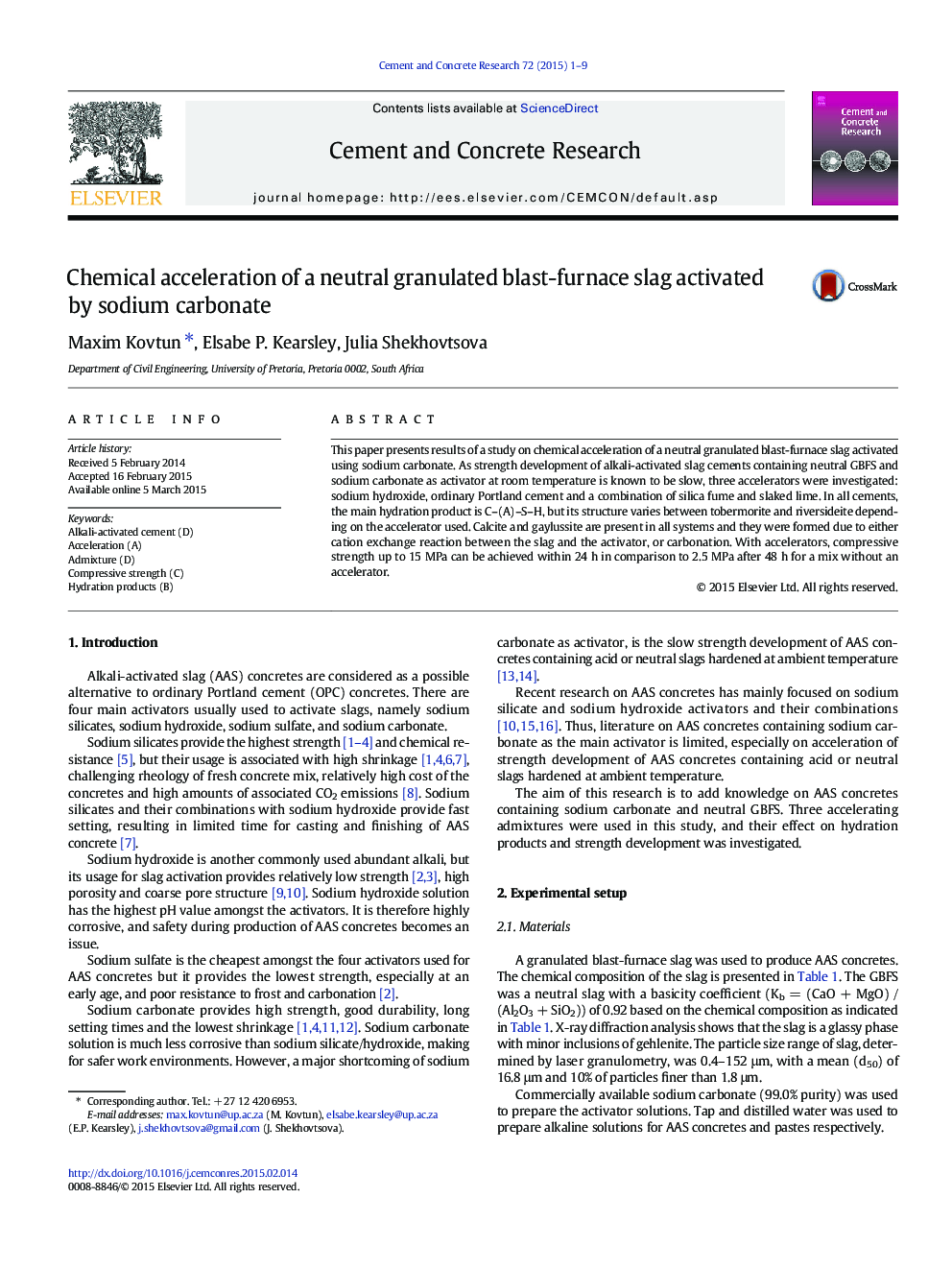| Article ID | Journal | Published Year | Pages | File Type |
|---|---|---|---|---|
| 1456155 | Cement and Concrete Research | 2015 | 9 Pages |
This paper presents results of a study on chemical acceleration of a neutral granulated blast-furnace slag activated using sodium carbonate. As strength development of alkali-activated slag cements containing neutral GBFS and sodium carbonate as activator at room temperature is known to be slow, three accelerators were investigated: sodium hydroxide, ordinary Portland cement and a combination of silica fume and slaked lime. In all cements, the main hydration product is C–(A)–S–H, but its structure varies between tobermorite and riversideite depending on the accelerator used. Calcite and gaylussite are present in all systems and they were formed due to either cation exchange reaction between the slag and the activator, or carbonation. With accelerators, compressive strength up to 15 MPa can be achieved within 24 h in comparison to 2.5 MPa after 48 h for a mix without an accelerator.
